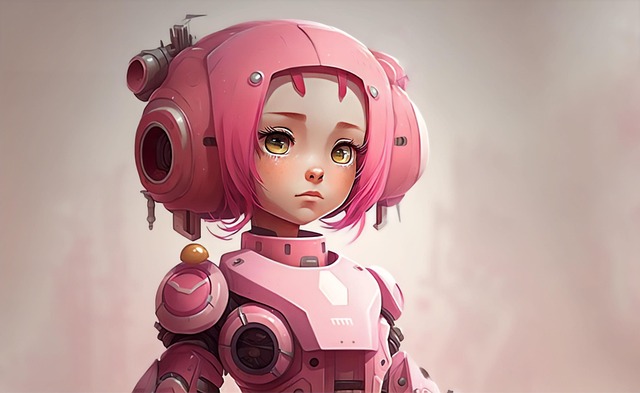# The Future of AI Technology: Innovations Reshaping Industries and Enhancing Human Experience
Artificial Intelligence (AI) is no longer a futuristic concept confined to the realms of science fiction; it has become an integral part of our daily lives and a catalyst for transformation across various sectors. As we stand on the brink of a new technological era, innovations in AI are reshaping industries and enhancing the human experience in unprecedented ways. This article delves into the multifaceted future of AI technology, exploring its impact on healthcare, finance, and education.
## Transforming Healthcare with AI
In the healthcare sector, AI is revolutionizing the way medical professionals diagnose, treat, and manage diseases. Advanced algorithms are being developed to analyze vast amounts of medical data, enabling faster and more accurate diagnoses. For instance, AI-powered imaging tools can detect anomalies in X-rays and MRIs with a precision that often surpasses human capabilities. This not only enhances diagnostic accuracy but also allows healthcare providers to make informed decisions more swiftly, ultimately improving patient outcomes.
Moreover, personalized medicine is gaining traction thanks to AI. By analyzing genetic information alongside lifestyle data, AI systems can help tailor treatments to individual patients, ensuring that they receive the most effective therapies. This shift toward personalized care is particularly significant in the treatment of complex diseases such as cancer, where traditional one-size-fits-all approaches often fall short. With AI’s predictive analytics, clinicians can identify which patients are likely to respond to specific treatments, thereby optimizing therapeutic strategies.
Beyond diagnosis and treatment, AI is also transforming healthcare administration. Intelligent systems streamline administrative tasks such as scheduling, billing, and patient record management, reducing the burden on healthcare staff. By automating these processes, hospitals and clinics can allocate more resources to patient care, enhancing the overall quality of service. As these innovations continue to evolve, the healthcare landscape will undoubtedly become more efficient, accessible, and patient-centered.
## Revolutionizing Finance Through Automation
Turning to the finance industry, AI is at the forefront of a digital revolution that is reshaping how financial institutions operate. One of the most significant changes has been the rise of algorithmic trading, where AI systems analyze market trends and execute trades at speeds and accuracies beyond human capability. This technology not only increases profitability but also enhances market efficiency by providing liquidity and reducing volatility.
Risk assessment is another area where AI is making a substantial impact. Financial institutions are now utilizing machine learning algorithms to analyze consumer behavior and creditworthiness more accurately. Traditional credit scoring models often fail to capture the nuances of an individual’s financial history, leading to unfair lending practices. In contrast, AI-driven models can assess a broader range of data points, enabling lenders to make more informed decisions and extend credit to underserved populations.
Customer service in the finance sector is also being transformed through the implementation of AI-powered chatbots and virtual assistants. These tools provide instant support for customers, answering queries and resolving issues around the clock. As a result, financial institutions can improve customer satisfaction while reducing operational costs. The integration of AI into finance not only enhances efficiency but also fosters a more inclusive and responsive financial ecosystem.
## Enhancing Education with Intelligent Technologies
Education is yet another domain where AI is set to make a profound impact. With the advent of intelligent tutoring systems, personalized learning experiences are becoming a reality. These systems adapt to individual students’ learning styles and paces, providing tailored educational content that enhances comprehension and retention. By analyzing performance data, AI can identify areas where students struggle and offer targeted interventions, thereby fostering a more effective learning environment.
Moreover, AI is facilitating administrative efficiencies within educational institutions. Automated grading systems can evaluate student assignments and exams, freeing educators to focus on pedagogy rather than paperwork. This shift not only saves time but also ensures consistency in grading, reducing potential biases. Additionally, AI can assist in optimizing course schedules and resource allocation, allowing schools and universities to operate more effectively.
The potential for AI in education extends beyond traditional classrooms. Online learning platforms are increasingly incorporating AI to deliver personalized content and assessments, making education more accessible to diverse populations. As remote learning continues to gain traction, AI technologies will play a crucial role in bridging gaps and ensuring that quality education is available to all, regardless of geographic location.
## Conclusion: Embracing an AI-Driven Future
As we look to the future, the implications of AI technology are vast and varied. From healthcare to finance and education, the innovations driven by AI are reshaping industries and enhancing the human experience in ways we could only imagine a decade ago. While challenges such as ethical considerations, data privacy, and job displacement must be addressed, the potential benefits of AI are undeniable.
Embracing these advancements will require collaboration among stakeholders, including technologists, policymakers, and industry leaders, to ensure that AI is developed and implemented responsibly. As we navigate this transformative landscape, the focus must remain on harnessing AI’s capabilities to improve lives, drive economic growth, and create a more equitable society. The future of AI technology is not just about machines; it is about enhancing human potential and fostering a better world for generations to come.











